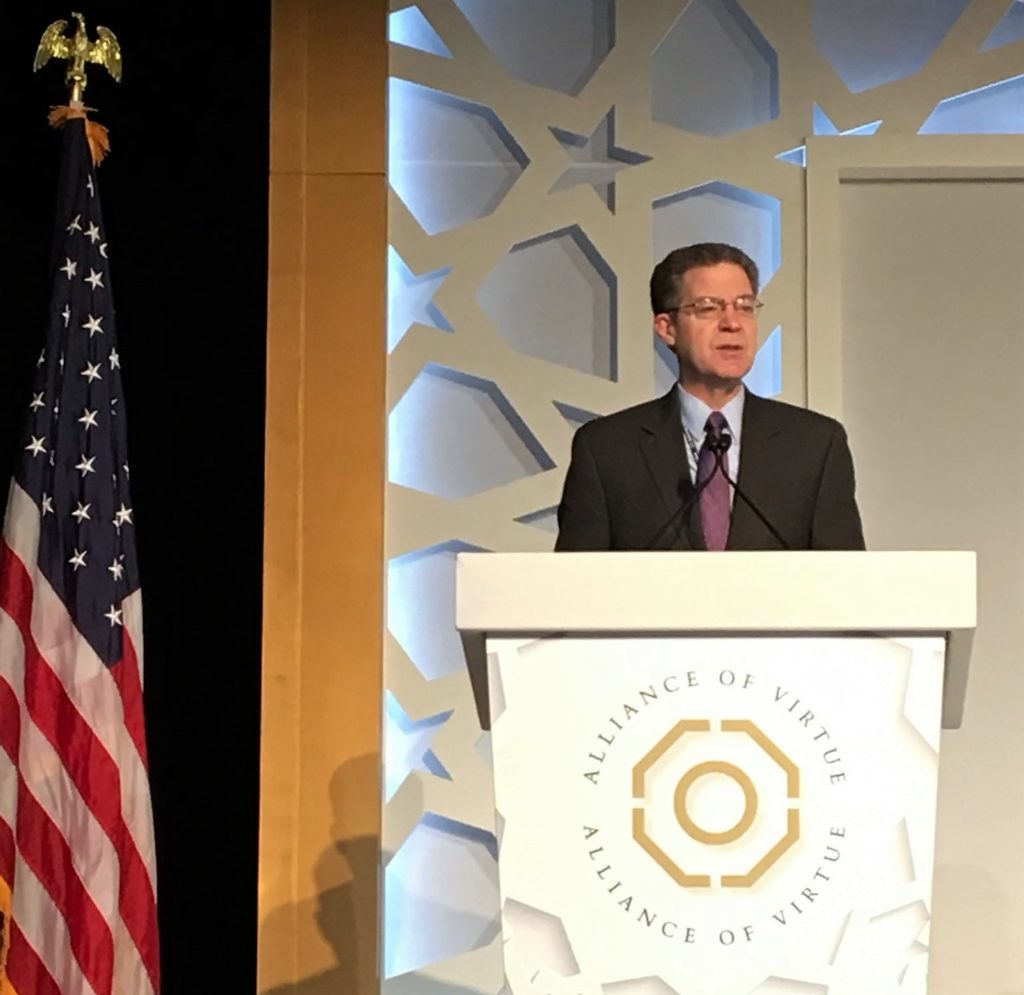
Newly appointed head of the US Office of International Religious Freedom, Sam Brownback, made his first public appearance at a gathering this week of Muslim, Jewish and Christian leaders meeting to discuss a shared commitment to protecting religious minorities in the Muslim world, reports the Catholic News Agency.
“I think religious freedom is the most important foreign relations topic today,” Brownback told delegates at the Alliance of Virtue for the Common Good conference in Washington DC. “The world needs reconciliation between the Abrahamic faiths,” he added.
The interfaith conference, hosted by the Forum for Promoting Peace in Muslim Societies, culminated with delegates signing the Washington Declaration in support of religious tolerance. The declaration’s final line reads: “Affirm that it is unconscionable to employ religion for the purpose of aggressing upon the rights of religious minorities in Muslim countries.”
It builds on the January 2016 Marrakesh Declaration, calling for the protection of religious minorities in Muslim-majority populations, which was signed by more than 350 faith leaders from more than 60 countries.
Brownback, 60, was confirmed as Ambassador-at-large for International Religious Freedom in January. He is the fifth person to hold the post since it was created in 1998.
Meanwhile, the US Commission on International Religious Freedom (USCIRF), which created the Ambassador-at-large position, has called the failure of the US government to designate Russia a ‘Country of Particular Concern’ “another missed opportunity”. The US State Department published its most recent annual list of religious freedom violators in January.
The comment came after USCIRF commissioners visited Ukraine in December. After their visit, the commissioners said: “What we saw and heard confirmed the reality of Russian persecution and harassment of religious minorities.”